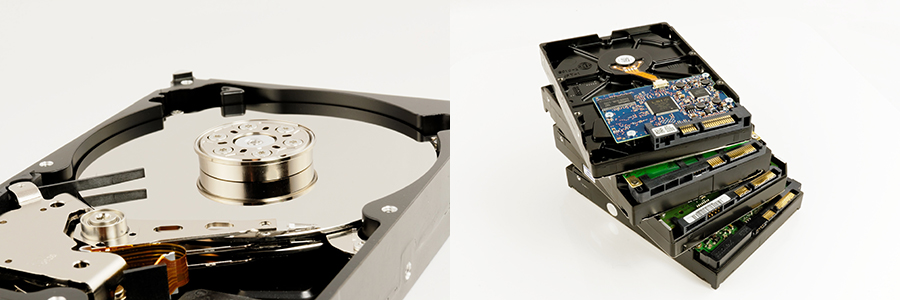
Depositing and storing your data is one of the standard data management requirements of research funders. UCT offers support to ensure compliance with these funder mandates.
How do I deposit my data with UCT?
UCT offers an institutional data repository service, ZivaHub , which is available to all students and staff at UCT. More information on depositing and publishing data at UCT.
Social science survey and administrative microdata (data at unit record level) from South Africa and other African countries can be deposited with DataFirst .
Alternatively, you can deposit your data with the UCT community on Zenodo . Please be aware that data deposited with Zenodo is stored on CERN servers outside of South Africa.
For information on storage options for raw or working data (data to be collected and analysed during your research project), please note that UCT has contracted with Google and Microsoft to provide researchers with free storage through your UCT Google Drive (10 TB) and UCT One Drive (1 TB) accounts. For data that is too sensitive to be stored on cloud services, or is legally required to remain within South Africa, you can consult the UCT Research Support Hub's information on storing research data .
The POPI Act
The core focus of POPI in a research context is ensuring that if personal identifiers must be collected, they need to be stored in a secure, access-controlled location to prevent the data from being harvested and used by third parties. POPI does not prevent open data sharing - in fact, open data sharing, by virtue of the need to remove personal identifiers from shared datasets, complies entirely with POPI. In research, POPI impacts more on the research process, such as being strategic in storing only de-identified datasets on cloud storage, and ensuring that on-site storage (personal hard drives, external hard drives, network drives) is strictly access-controlled to named and designated individuals to ensure data protection.
- http://www.popiact-compliance.co.za/popia-information
- http://www.justice.gov.za/legislation/acts/2013-004.pdf
- http://www.popiact-compliance.co.za/popia-information/14-transfer-of-personal-information-out-of-south-africa
Does UCT charge me to deposit and store my data?
ZivaHub , UCT's institutional repository for sharing processed datasets that support research outputs, is free of charge to UCT affiliates, with an initial limit of 20GB per user. You can request more space via the interface, but note that this may require an official motivation via your designated departmental Data Steward.
The storage provided though the UCT Google Drive and UCT One Drive is free. The current pricing for additional onsite storage of working project data is updated periodically on the eResearch website . It is important to include these storage costs in your funding application.
Given the variable demand for data storage and the exponential growth in that demand, ICTS is obliged to pass on the direct cost of data storage to users. The cost is not static, as it must remain related to market prices, with the assurance that every effort is made to negotiate favourable pricing in greater economies of scale.
Navigate to UCT's Research Support Hub for further assistance with
What formats should the data be in?
Non-proprietary formats are preferred, but most proprietary formats are also accepted and can be rendered from within the browser on ZivaHub. It is best to use open formats with wide adoption wherever possible to make it easier to sustain the file into the future, as open file formats are easier to migrate to new formats as software changes.
The UK Data Archive provides a useful table of recommended file formats for long-term preservation of data, and the UK National Archives provides a digital preservation guidance note [.pdf] on selecting file formats for long-term preservation.
For further assistance with file formatting, please make an appointment with one of our Data Curators.
What should be deposited with the data?
Good documentation and metadata help to make your data FAIR (Findable, Accessible, Interoperable and Reusable). Any metadata or additional documentation pertaining to your research and research data should be deposited with the data files. Supplying supporting documentation such as study descriptions, project plans, lab notebooks and codebooks are all ways of making the data more understandable to future users.
For assistance with the creation of basic, generic metadata for your research outputs, follow the UCT Metadata Entry Guidelines provided by the Metadata Working Group (MWG).
Figuring out what type of metadata is best suited to describing your research data is a complex task. The Digital Curation Centre (DCC) provides links to a range of discipline-specific metadata standards , which are important to consider when creating documentation for your research data.
What else is required from me to deposit my data at UCT?
Depositors should ensure that they are the owners of the data and have the right to deposit data that will be openly shared and reused. If you are unsure whether your data is protected by copyright, you can visit Research Contracts and Innovation for further assistance with copyright.
When you publish data on ZivaHub, you are required to accept the ZivaHub terms of data deposit .
How will my data be made available?
At UCT, data depositors are encouraged to choose a subject- or discipline-specific repository where possible. If there are no disciplinary repositories or you'd prefer to publish your data locally, there are several platforms available for sharing your data at UCT .